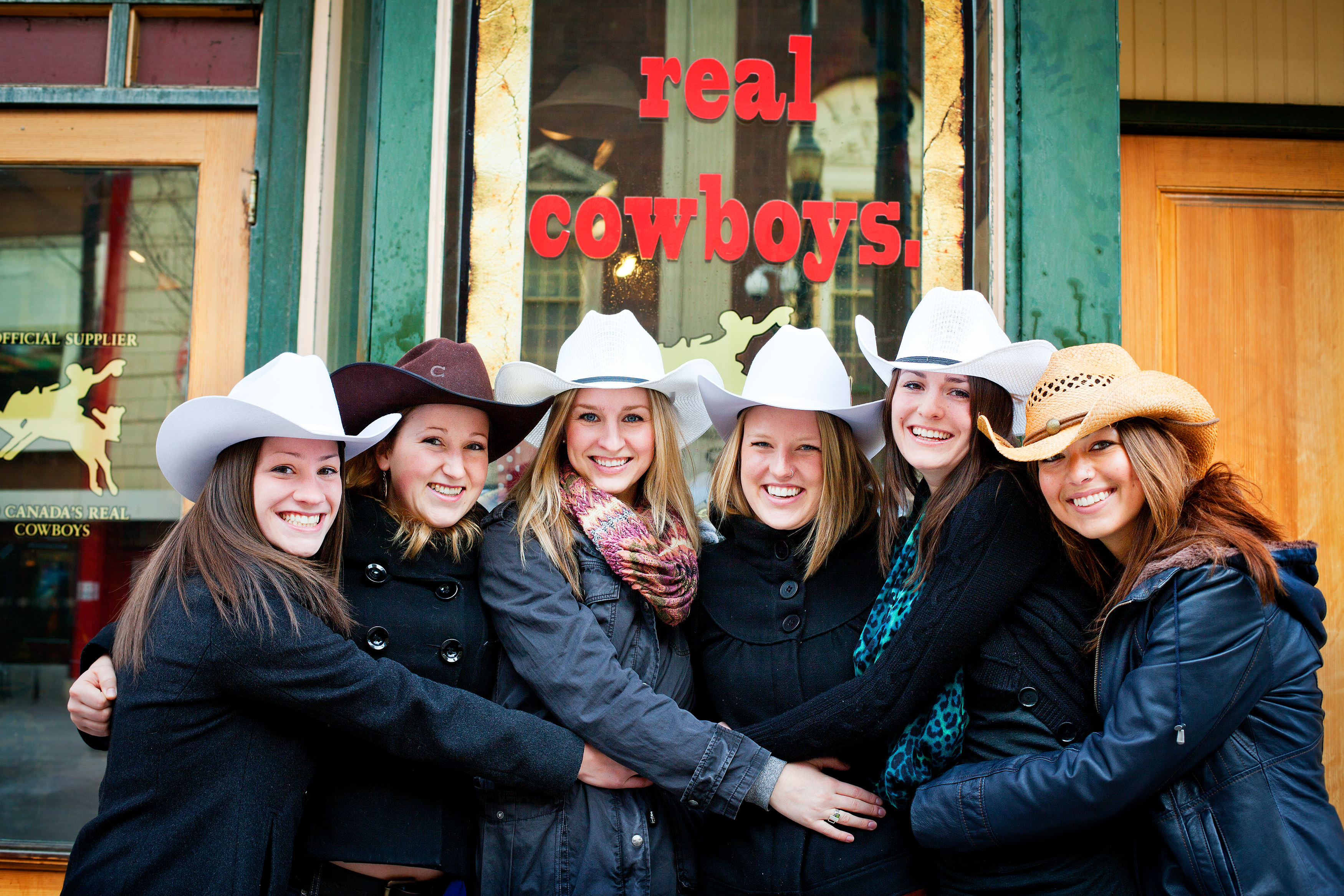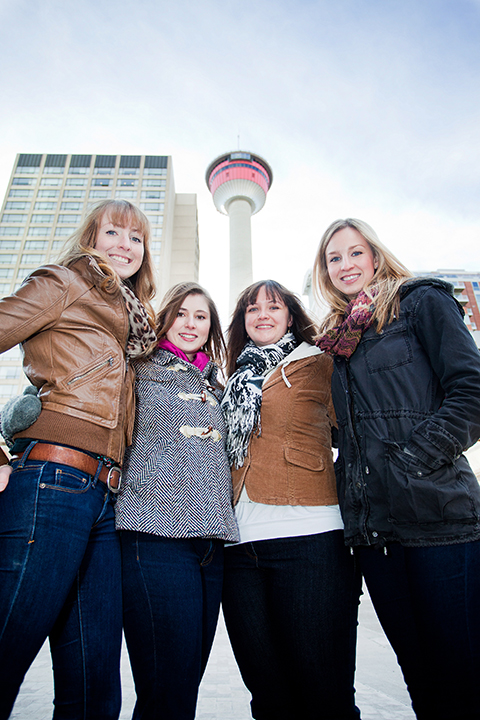
The class of 2014 is the first group of Calgary-based occupational therapy students to complete the program.
(Edmonton) Two years ago, 11 women came together as strangers-both to each other and their new city of Calgary-with a desire to learn and, ultimately, help others lead healthier, more productive lives.
This past summer, the same group of 11 assembled one more time, enjoying a lakeside retreat to toast each other and their accomplishment of being the first-ever class to graduate from occupational therapy at a University of Alberta satellite site in Calgary.
"We are very good friends, not just colleagues," says Sandra Rusu, who on Nov. 19 joined her peers in receiving a master's in occupational therapy from the Faculty of Rehabilitation Medicine.
The Calgary-based program launched in 2012, part of the U of A's response to addressing a growing need for trained occupational therapists in southern Alberta. Students had access to the latest in innovative learning technology, hands-on clinical training and research opportunities, with strong connections to the local rehabilitation community.
Originally from Toronto, Rusu had planned to pursue occupational therapy in Ontario, where she'd be close to family and friends. She jumped at the opportunity to study in Calgary, her husband's hometown, and take full advantage of the smaller class sizes and other elements that make the program unique in Canada.
"It surpassed my expectations, in all honesty," she says. Due to the small class size and the fact that most of "the girls" came to Calgary from various corners of Canada, they quickly gelled as a group.
"We became a really, really cohesive group and we really motivated each other."
-Sandra Rusu, MSc occupational therapy, class of 2014
"We became a really, really cohesive group and we really motivated each other. We challenged each other to succeed, which I think has helped all of us become much better professionals."
Rusu says she wouldn't trade her experience for a larger lecture hall setting. She got to know her professors better, working side-by-side with clinicians who taught classes and through the use of synchronous technology that put students in Edmonton and Calgary in the same room for lectures.
"It was like we were in there in person. In fact, I think we could see things better than people in Edmonton."
Kristen Rabel was among the few occupational therapy students actually from the Calgary area, but beyond location she was sold on the U of A based on her undergraduate experience in physical education. Her desire to enter a rehabilitation field was influenced in part by her own experiences and a five-year battle with compartment syndrome, a painful condition that resulted in excess blood flow and swelling in her calves that contributed to the end of her figure-skating career.
"That experience opened my eyes to the fact that there are other things in life that you have to be open to and really evaluate your priorities to figure out what's most important to you," says Rabel. "What I like about occupational therapy is you're helping people evaluate what is most important to them, whether or not full rehabilitation is possible. OT can still help that individual participate in whatever it is that they have decided is most important to them."
Unparalleled student experience
Calgary-based students enjoyed the same learning opportunities as their cross-province peers. Rabel had the opportunity to study abroad, completing one of her four six-week clinical placements in Indonesia, which she says provided valuable experience working with people from other cultures.
Rabel also gained valuable research experience working on the Locator Device Project, a 12-month trial that uses GPS technology placed in shoes or attached to the wrist to help locate lost Albertans with cognitive impairments such as dementia. Rabel worked alongside lead researcher Lili Liu, chair of the Department of Occupational Therapy.
"It's been really great to gain a perspective on some of the more practical parts of research, how a project like this works day to day, what sort of tasks have to be done to ensure you're getting high-quality research," Rabel says. "It gave me an opportunity to interact with clients that I may be working with in the future as an OT, developing skills with that type of population."
Having strong relationships with classmates and professors also came in handy for Rusu when she became pregnant with her first child in her second year. It resulted in a bit of schedule juggling for clinical placements and some hectic studying for licensing exams, but Joshua Alexander Ciocan was born happy and healthy on Aug. 21.
"If I was in a different setting, I don't think I would have got through pregnancy in the same way," Rusu says. "This group kept me going and got me to succeed."
Liu says the experiences and performances of the Calgary-based students have already helped forge stronger ties between the U of A and the clinical community in southern Alberta. With an aging population, the U of A-and these graduates in particular-will help address a growing need for occupational therapists in that part of the province, she says.
"Our instructors did a remarkable job teaching students in both centres, and our students responded. Most are already working in the field, with many choosing to stay right here in Alberta," says Liu. "It's gratifying to see them blossom so early in their careers and make a difference in the lives of their clients."
It's also fitting that this class celebrated their accomplishments together, in their own way, at one of the students' family cabin at Wasa Lake.
"It was our own celebration of our own experience," says Rabel. "It was and still is very exciting to know that, going forward, we have an amazing group of friends-now colleagues-who will be there to support and cheer us on through the next phase of our lives."
